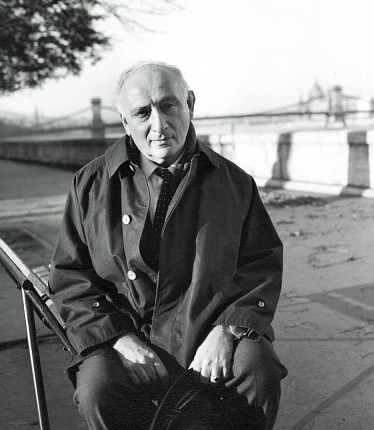Vas István: 1944 június 6
1944 június 6 (Hungarian)Zöld autó, zöld egyenruhában szőke tiszt, Fékez a gépkocsi. Piros fény. Tilos út. S töri a szót: "Sie fahren nach Astoria?" A jelzőlámpa már pirosból zöldre vált. S míg teuto-nordikus gőggel a barna eb S a fogcsikorgatás, a kín, a döghalál,
|
The colours that day (English)The soldier is tanned and blond, his car and tunic green. The traffic light turns red. The vehicle must stop. He speaks too loud: “Sie fahren nach Astoria?...” The light has turned again to amber and to green. From the parting car, the hound still holds For a moment, the murder, the pain, the fear that smear
The author, a descendent of generations of provincial rabbis, converted to Christianity and survived the Holocaust by hiding with friends. This enabled him to record in poetic eye-witness accounts the events of the Nazi rule in Budapest, including the deportation of his own mother to a place of mass murder. This translation appears in Survivors: Hungarian Jewish Poets of the Holocaust translated and edited by Thomas Ország-Land (Smokestack Books, England, 2014).
|




